Why We Keep Researching
In the most literal sense, Kaizen means good change or continuous improvement. We talk a lot about Kaizen psychometrics because one of Hogan’s core values is to continually improve our business products, services, and practices. The foundation of all of these initiatives is Hogan's assessments. Although this sounds simple, it is surprising how few test publishers work to update and improve their assessments. This is particularly true for personality assessments, where the intervals between original content and new items can often be measured in decades rather than years. Even worse, most are never updated at all. The reason so few test publishers update their assessments is that it requires immense amounts of time and energy. But the costs of not updating assessments can be much greater. Whether we like it or not, items become outdated, norms lose their relevance over time, and there is always room for improvement in even the most carefully constructed scale.
Below is a collection of Hogan's current research projects. The data from these projects are not currently available for purchase, but may be incorporated in future products.
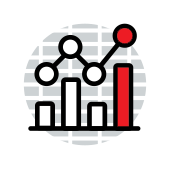
Improved Algorithms
Hogan is currently exploring machine learning approaches for algorithmically scoring key products associated with the Hogan assessments. Machine learning techniques provide improved predictive validity when applied appropriately; however, Hogan understands the importance of interpretability and transparency of Hogan's algorithms. Knowing why someone scored lower or higher is just as important as doing so accurately. Hogan's algorithms are both interpretable and accurate.
Improved Efficiency
Hogan is currently exploring and using narrow AI to streamline Hogan's behind-the-scene processes. One example of narrow AI use at Hogan is applying natural language processing to improve Hogan's accuracy and speed with coding focus-group notes.

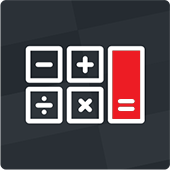
A Standalone Cognitive Assessment
Hogan is working on releasing the Hogan Cognitive Reasoning Inventory, which combines the Judgment Report’s Numerical and Verbal information processing assessments into a standalone test. The Numerical scale concerns the ability to process information and to identify patterns and rules in numerical data. The Verbal scale concerns the ability to understand and use words to their desired effect. The HCRI provides users scores on these two scales and a combined overall score, which is more representative of general cognitive ability.
New Items
Hogan continues to write and test new cognitive ability items for Hogan's assessments. Hogan's goal is to create more, equivalent forms of the Hogan Business Reasoning Inventory and the Hogan Cognitive Reasoning Inventory.

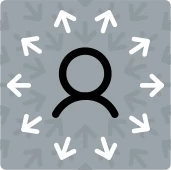
Know the Real You
Our reputations concern how other people see us. They reflect our past behaviors and our interactions with others. In the workplace, our reputations are often more important than our identities, or how we see ourselves. Hogan validates all the Hogan assessments using reputation-based data, looking for relationships between how people score on Hogan's assessments and how other people view them. This process is the key to the high-quality feedback people who take the Hogan assessments receive and have come to expect.
Hogan always gathering reputation research data. If you have taken Hogan's assessments in the past and wish to participate in the reputation research program, please click here.

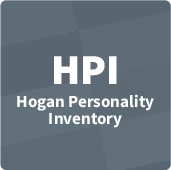
HPI Update
Hogan is currently testing over 1,000 items to update Hogan's measure of day-to-day personality, the Hogan Personality Inventory. The updated assessment will include the same scales as the current HPI but with new items and more up-to-date item content. This will help improve the psychometric characteristics of the HPI, including its reliability, factor structure, and predictive validity.


C-Suite Benchmarks
Defining Personality Profiles of Successful Leaders
We are interested in understanding key personality characteristics of leaders responsible for running the most successful companies across the world. What sets the CEO apart from the rest of the senior leadership team? Do more successful C-suites share common values or personality characteristics that impact the company’s financial growth? Hogan's research focuses on building CEO and C-suite benchmarks for clients to use when comparing their executives to other successful leaders.
OUTCOMES
Hogan's archive of personality assessment data contains thousands of executive profiles aggregated to produce industry- and job-level summaries. When combined with publicly available company performance data, Hogan's benchmark database will help answer Hogan's research questions and cultivate new models and tools used to develop future leadership teams.

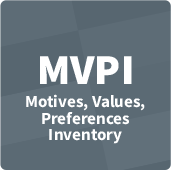
MVPI Update
Hogan is currently testing an updated Motives, Values, Preferences Inventory (MVPI) to describe individual values. The updated assessment will include the same 10 scales as the current MVPI, but will measure new subscales to provide three different insights into people: (a) what types of jobs they want, (b) what drives or motivates them, and (c) what subconscious biases may affect their views.

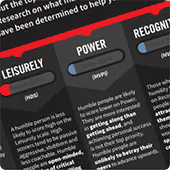
Humility
Killing the Myth of the Charismatic Leader
This project challenges the assumption that charismatic leadership is inherently good for organizations. Instead, we propose that charismatic leadership may be dangerous and that humble leadership is a much healthier and effective alternative.
Intended Outcomes
The goal of this research is to help organizations identify, develop, and promote humble leaders who (a) acknowledge their mistakes and/or limitations, (b) show support and appreciation for their followers’ successes and strengths, and (c) keep an open mind with respect to continuing professional learning and considering alternate views.

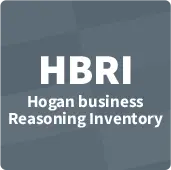
The Hogan Business Reasoning Inventory (HBRI) is a cognitive test widely used to determine how people approach and solve business-related problems. This update includes adding new items and creating multiple, equivalent HBRI test forms.
The goal of this update is to make the HBRI more compatible for selection purposes, giving organizations the means to assess how well candidates reason through business problems


Judgment
Judgment concerns how people make decisions, how people react to feedback from others, and how much people change in response to feedback. Hogan is updating the Judgment assessment, as part of the broader work to update our suite of cognitive and decision-making assessments. Currently, Hogan scores Judgment’s decision-making styles and reaction to feedback scales using items from the core Hogan assessments and items unique to Judgment. Hogan is working to create a Judgment assessment that Hogan can score from items on the core assessments only.
Intended Outcome
This improvement will allow anyone taking Hogan's core assessments to also receive feedback on their decision-making processes without the need for an additional assessment.


